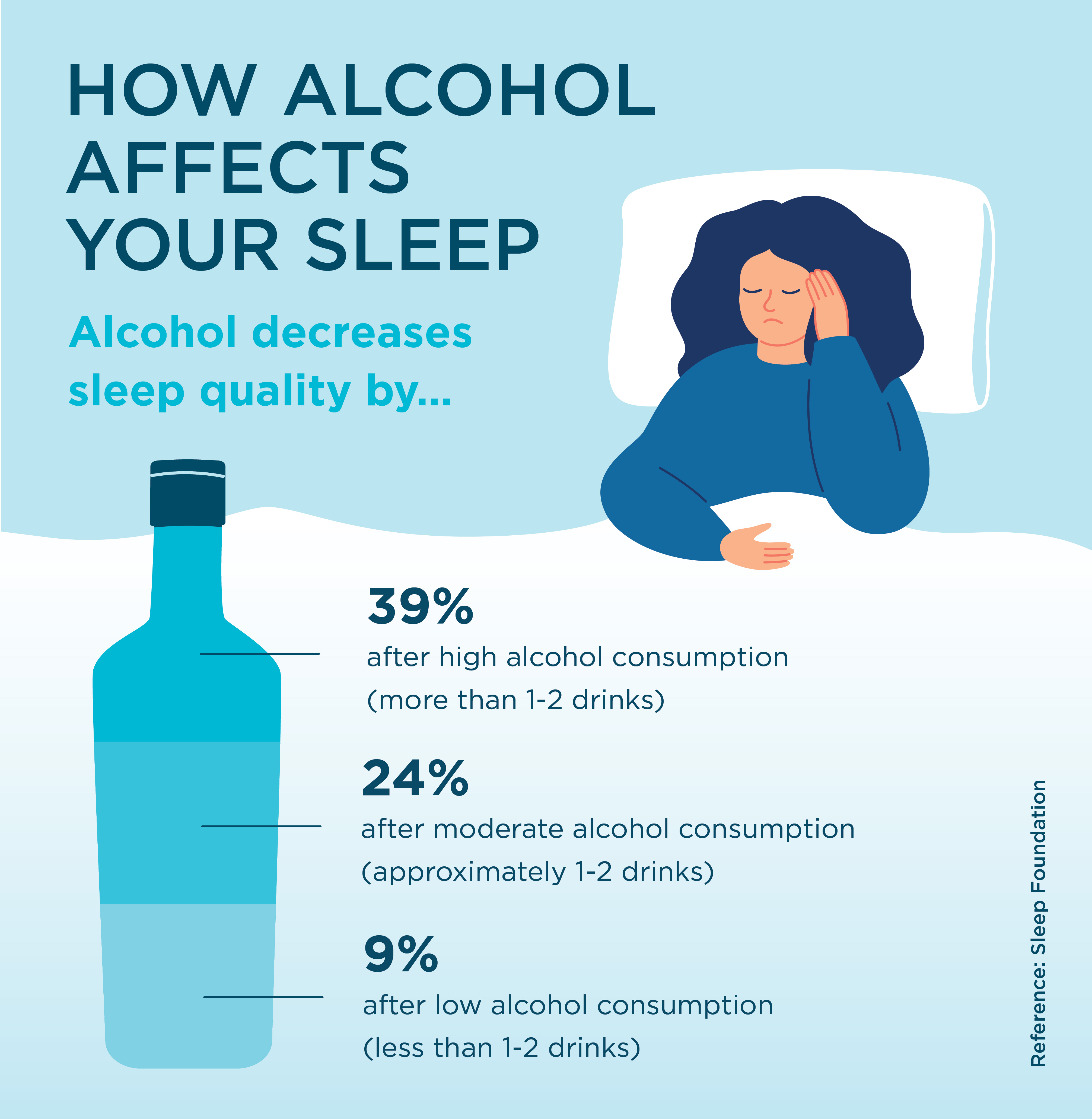Alcohol and sleep: how drinking affects your sleep
Can’t sleep after having a drink? Here, we outline the effects that alcohol has on sleeping.
Can’t sleep after having a drink? Here, we outline the effects that alcohol has on sleeping.



Alcohol has many effects on our body’s functioning, and sleep is no exception. Alcohol can make you feel drowsy and help you to fall asleep more easily, but in reality, it only damages your quality of sleep.
Read on to find out how alcohol affects your sleep, and the things you can do to help you get a better night’s sleep, even after you've been drinking.
You’ll probably find that after a few drinks, you start to feel tired. This is alcohol’s sedative qualities at work, slowing your brain activity. It can help you to feel more relaxed and sleepy. Once you go to bed, you might find it easier than usual to drop off to sleep.
The effects of drinking alcohol before going to bed can mislead some people into believing they're getting a better night’s sleep, when in fact the opposite is the case.
Even one or two alcoholic drinks can affect sleep quality. Drinking above experts’ recommended weekly alcohol intake guidelines can contribute to you feeling excessively tired the following day. There are a few reasons for this:
Dr Natasha Bijlani, Consultant Psychiatrist at Priory Hospital Roehampton, explains how falling asleep quickly due to drinking alcohol is negatively outweighed by the disruption it can cause to your sleep cycles, even several days or weeks after a period of heavy drinking.
She says: “The more prevalent, disruptive effects of alcohol use on sleep include more frequent awakenings, worse sleep quality resulting from a reduction of deep sleep and increase of restless REM sleep stage, alongside earlier than usual waking times, leading people to feel that they didn't get enough sleep.”
If you have a condition like sleep apnoea, drinking alcohol can make it much worse. The Sleep Foundation states that, for someone with sleep apnoea, drinking alcohol:

For people who have an alcohol addiction, having a dependence on the substance can affect our sleep in even more damaging ways.
If you drink heavily for many weeks, your body may develop a tolerance to alcohol, both physically as well as psychologically. You may find yourself drinking increasing amounts as time progresses, to achieve the same effects. In these cases, disrupted sleep will become a common symptom of your alcohol addiction.
This will enhance the damaging effects of alcohol. Dropping off to sleep may be easier, but you’ll consistently get a lower quality of sleep. If you stop drinking, you might experience unpleasant alcohol withdrawal effects, where your body reacts physically to a lack of alcohol in your system. Withdrawal symptoms can include many uncomfortable sensations like headaches, vomiting and fever – all of which can contribute to keeping you awake at night. In addition, some alcohol withdrawal symptoms are psychological and can include things like anxiety, panic attacks and vivid nightmares. These, in turn, can also disrupt your sleep.
If you’re going on a night out, or know you’ll be having quite a few drinks, there are things you can do to mitigate the effects of alcohol on your sleep. Having healthy sleep habits can also help you with enhanced sleep in the long-term.
Cutting down on alcohol is the best way to get a better night’s sleep, but here are some healthy sleep strategies to adopt when you've been drinking:
At Priory, we provide outstanding treatment for alcohol addiction throughout our network of UK rehab centres. If your dependence on alcohol is affecting aspects of your life, including your sleep, it might be time to reach out to us for extra support.
Use the information below to get in touch with Priory’s team and book a free, no-obligation addiction assessment.
